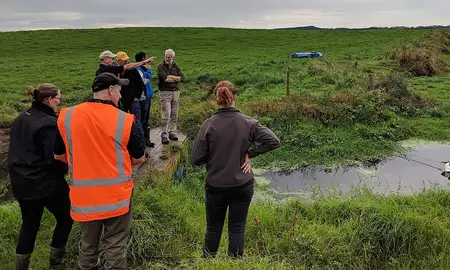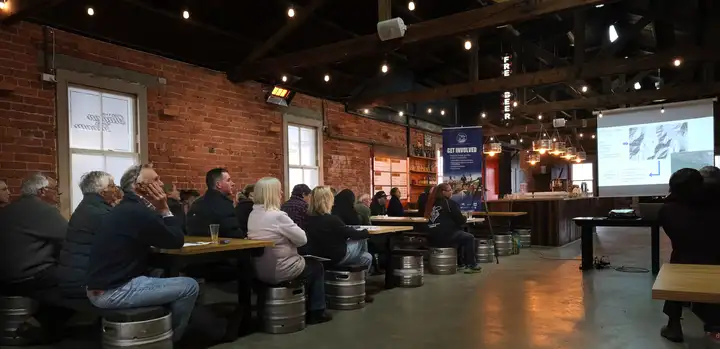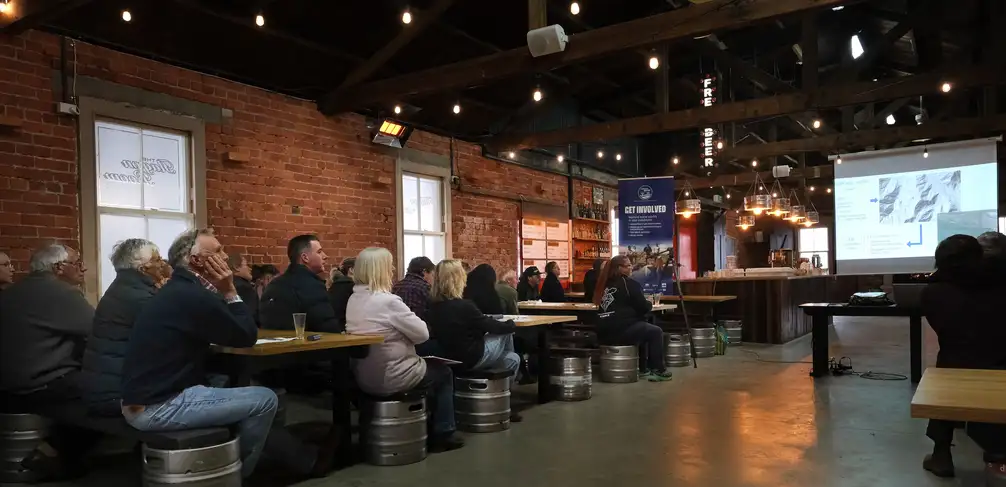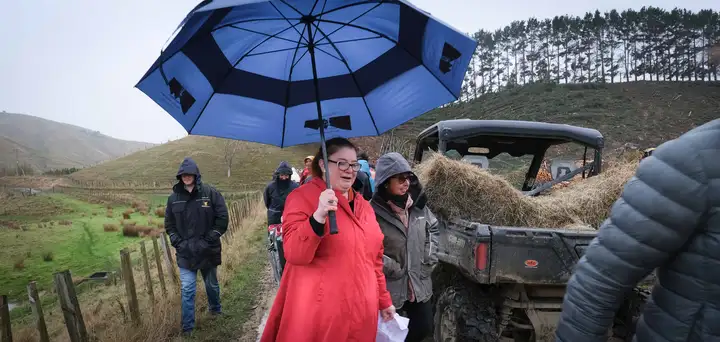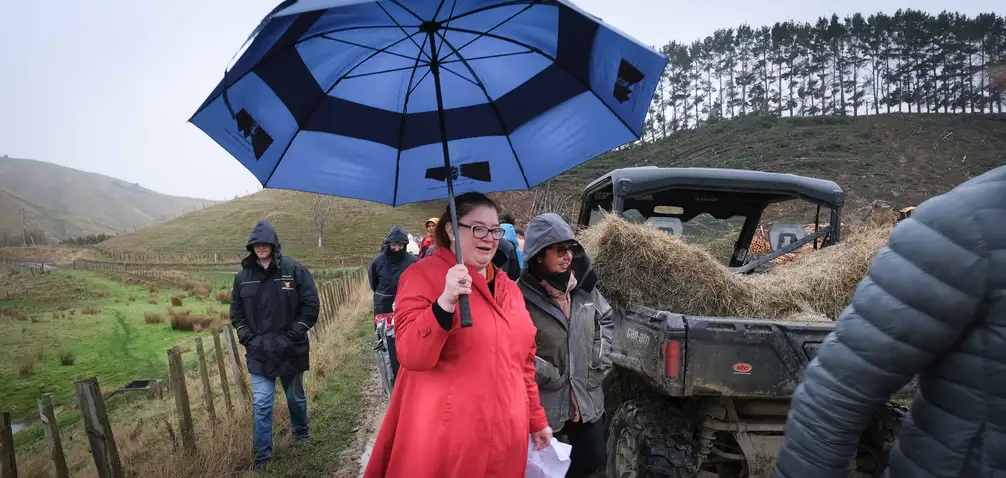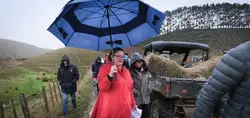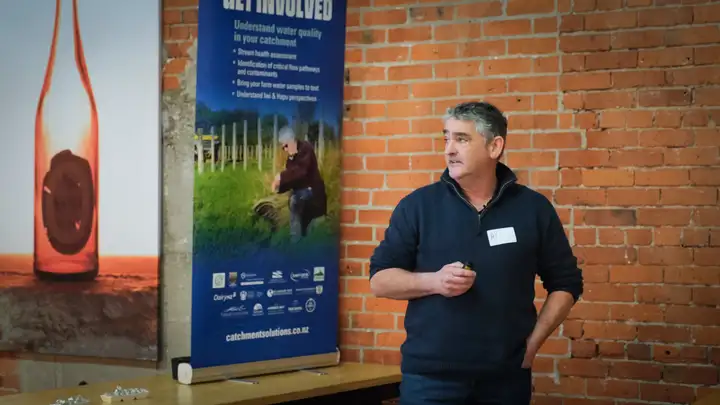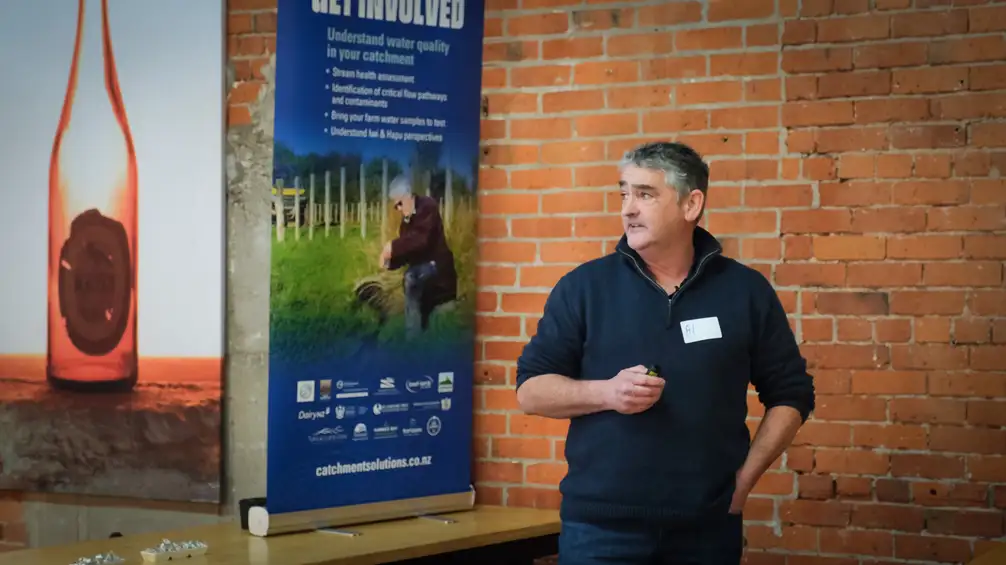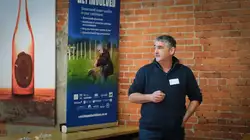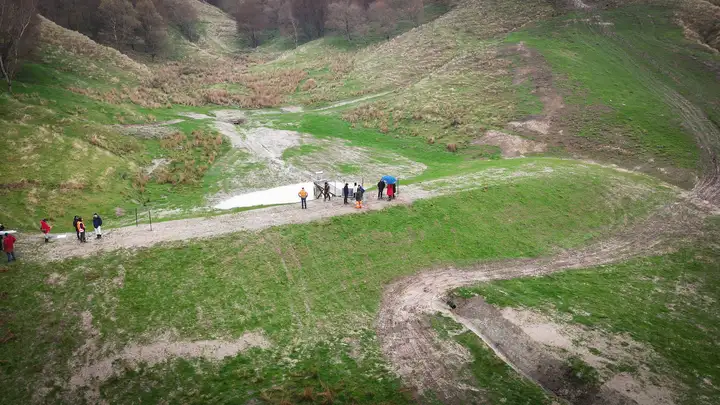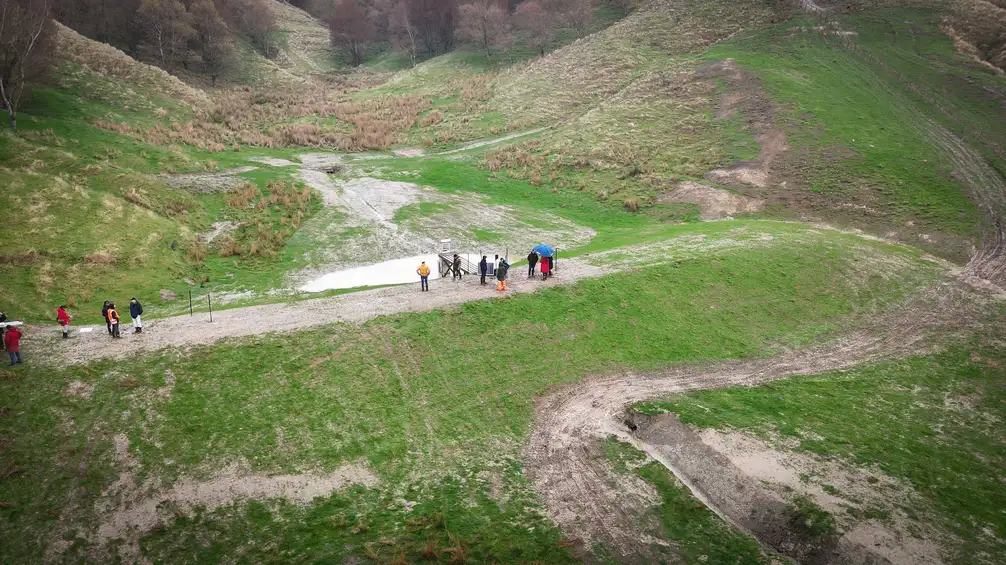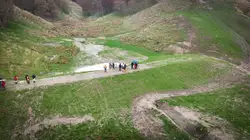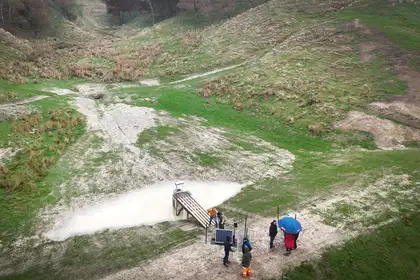
The detainment bund.
Attendees also got to visit the first detainment bund constructed in the lower North Island.
Workshop attendees included farmers, contractors, industry professionals from organisations such as DairyNZ and Horizons Regional Council, catchment group leaders and iwi and hapū representatives. They received presentations from researchers and rural advisors from Te Kunenga ki Pūrehuroa Massey University’s School of Agriculture and Environment, Horizons Regional Council, Dairy NZ, Phosphorus Mitigation Project Inc, and from Allister Body, who shared his first-hand experiences on the construction and operation of a detainment bund at his farm in west Otago.
The full-day event began with the workshop in Mangatainoka, followed by field trips to visit a flood control dam and a recently constructed detainment bund in the Mangaone river catchment.
The Catchment Solutions Project, led by the School, has been collaborating with the Mangaone Catchment Group in analysing key water quality contaminants and mapping critical flow pathways in their catchment. The Catchment Group discovered they needed to mitigate the effect of sediment loss into waterways, so volunteered to trial a Detainment Bund PS120 in their catchment, in collaboration with the Catchment Solutions Project.
Detainment bunds are a novel edge-of-field practice aimed at reducing the loss of suspended sediment, phosphorus and pathogens from pastoral lands into waterways.
They are designed to temporarily pond storm runoff water during rainstorm events. Temporarily holding the storm runoff water behind a bund slows its flow velocity and creates an opportunity for any suspended materials in runoff waters to settle down. You can visit and learn more about detainment bunds in a virtual tour available on the Catchment Solutions Project website.
Associate Professor Ranvir Singh leads the Catchment Solutions Project, which aims to enhance rural capability and capacity to help achieve improved freshwater quality outcomes in rural catchments across Aotearoa New Zealand.
By focusing on the identification and management of critical flow pathways, the Project is working collaboratively with local catchment groups to reduce the loss of contaminants from agricultural lands into waterways.
“Co-developing and sharing science, knowledge and practical practices with catchment communities, farmers and rural professionals are key to engage and enhance rural capability and capacity for improved freshwater outcomes”, Dr Singh says.
Arapera Paewai from the Whatumā Management Group attended the workshop and says the day outlined what can be achieved by being collaborative and solution-focused.
“The workshop was informative, with diverse speakers and on-site visits that was backed up by the information presented. It also provided a space to discuss the areas we need support with and we got beyond the farm fence answers from our neighbours and region.”
Related news
Waterway restoration and protection the aim of Massey-led project
A project aimed at enhancing the rural sector’s capability to improve essential freshwater on farms has been awarded funding from the Ministry for the Environment’s Essential Freshwater Fund.
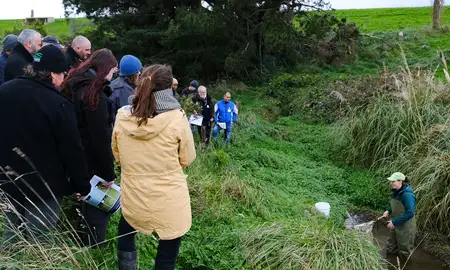
Workshop will focus on challenges and solutions within New Zealand’s primary production industry
Diverse solutions for efficient land, water and nutrient use is the theme of this year’s Farmed Landscapes Research Centre workshop.
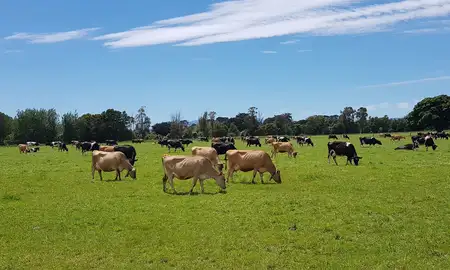
Water quality workshop takes problems global
Scientists from around the globe gathered at Massey University last month to share concerns and research with councils and organisations around effective and targeted water quality management solutions in sensitive agricultural catchments.
